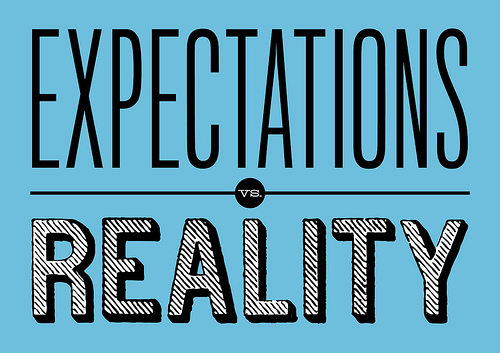Pen Pal Project
Great Expectations
April 7, 2015, 6:30 a.m.
Dear Reva,
I’m writing to you at the last minute this week. I rarely work before school drop off at 8:45, but I’ve been struggling with what I want to share.
Normally, I write to you about personal things, but things I’ve had time to process. This week has been one of the saddest and most stressful of my life. I’ve had several of those weeks in the past year, but we weren’t writing to each other then. But I can’t come up with any other topics, really, because my busy brain is, well, processing.
Here’s what happened, in short: I spent a full day in mediation and arrived at a final separation agreement with my husband, and sold my house the same evening. In other words, I dismantled, in one day, a life that I had spent 15 years building. These are positive outcomes in many ways, actually, but I feel somewhat dazed. When I wake up in the morning these days, I’m often disoriented, as you are when you wake up in a hotel far from home, thinking that you are in your own bed, and wonder: where did that ugly lamp come from? I always need a few seconds to locate myself in time and space.
Being in the here and now: I told you in an early letter that this is my challenge, or as you yoga types like to say, a core aspect of my practice. I know this because I’ve been doing Moksha yoga recently – your influence! I find it unexpectedly grounding. Also, all the sweating makes me feels as though I’m expelling toxic stress, though part is mostly in my head, I’m sure.
I liked your letter about drinking. I’m interested in how we (women in particular, but men also) use numbing behavior to shield ourselves from discomfort and vulnerability. Drinking is one method, certainly, but perfectionism is another; as long as we are focused on the next achievement, there’s no need to stop and ask ourselves why, or even if, we really want whatever we are chasing after.
Have you read any of Brené Brown’s work? She does research on shame, and writes compellingly about the lengths that we will go to protect ourselves from vulnerability. Her point, a good one, is that if you numb one feeling, you numb them all: numb sadness, and you numb happiness, numb fear, and you numb courage. Check out her TED talk here.
I’m also intrigued, though not especially surprised, by the study you cite on women’s declining happiness levels. As Nora Ephron once said: “The major concrete achievement of the women’s movement in the 1970s was the Dutch treat.” I’ve been a stalwart feminist since adolescence, but really, doesn’t it seem, more often than not, like our generation of women got a raw deal?
And we’re supposed to be thrilled with all of our amazing choices! We can choose to have high-powered careers, for example, while other people raise our children, and be exhausted all the time, and wonder what it is all for. Or we can choose to stay home with our kids, and feel judged by working women, and guilty for squandering all our talents and opportunities. Or we can choose a middle road of part time or less ambitious work, and feel uncomfortable with the trade-offs we’ve made.
And many of us in every category are pouring a big glass of wine at the end of the day to numb feelings of frustration and disappointment.
In mediation this week, the mediator began by saying: “All divorces are about disappointed expectations.” I thought it a very profound observation, and true more broadly. Midlife, too, is about disappointed expectations, and a successful transition involves revisiting and recalibrating the expectations we’ve carried into midlife from other ages and stages. I am not saying that we should lower them, necessarily, but that we need to be more honest about them, with other people and with ourselves.

A lot of ink is being spilled these days about happiness, and I’m all for it. We are the luckiest people in the world, and we should all be happier than we are. But until we let go of old expectations, and stop numbing our disappointments, and come alive to what we really want from our relationships, our work and ourselves, happiness will feel elusive. Elizabeth Gilbert circulated a quote this week by Howard Thurman, a preacher and American civil rights leader, and it struck a chord with me: “Don’t ask yourself what the world needs. Ask yourself what makes you come alive and then go do that. Because what the world needs is people who have come alive.”
It is spring, after all.
Yours,
Kate

